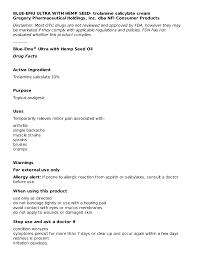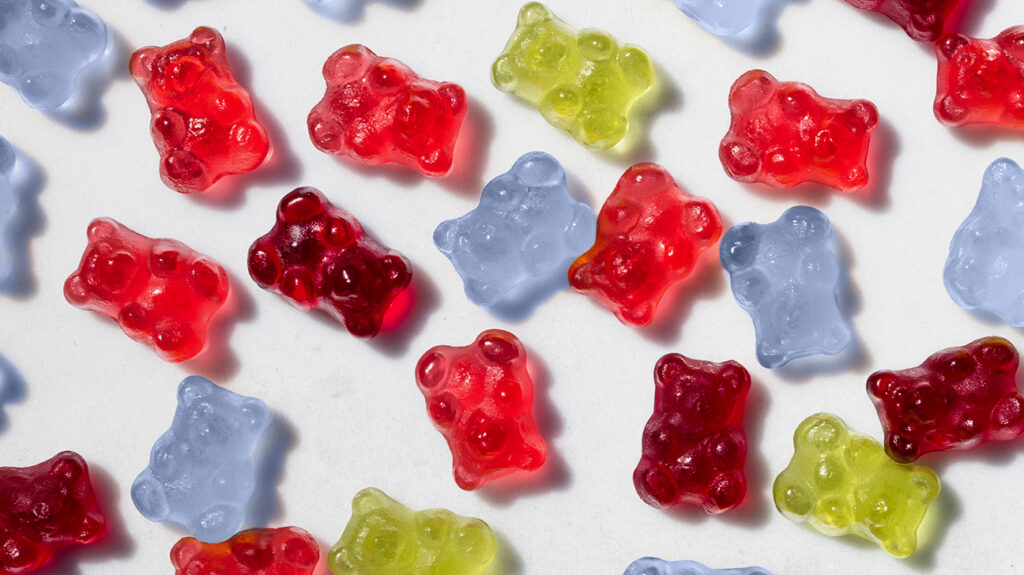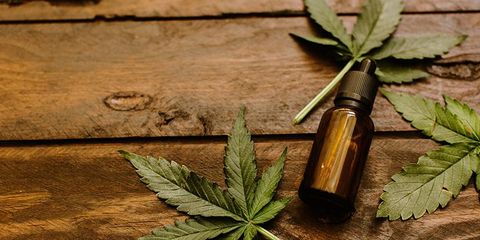
THC-free CBD oil is a great option for anyone who is concerned about the possible negative effects of marijuana. Using these products can help you relax, get a good night's sleep and boost your energy. They also contain healthy plant compounds.
Many CBD oils contain essential oils. They are an excellent source of antioxidants that can fight infections. Flavonoids, which possess powerful antioxidant properties are also found in other products. These compounds can also be found in fruits and vegetables.
The FDA advises against CBD use during pregnancy. However, there is little evidence that it is harmful to a developing fetus. You may consult a doctor before you take CBD. CBD could interact with prescribed medicines.
CBD isolate is preferred over full spectrum by some people. This product can be used in foods and is much easier to digest. The entourage effect is when all of the compounds in the plant work together to create a beneficial effect.

Products made with non-GMO ingredients should be considered. Some companies also offer products that have been tested in accordance with ISO 17025. You should also check the COA (certificate-of-analysis) to ensure the product is free of THC.
Although CBD doesn't have any medical claims, there have been reports that CBD can reduce stress levels and promote relaxation. It can also lower inflammation and decrease pain.
While this might sound great, there aren’t many studies that support the claims. There are, however, a few products that are worth trying. For example, the brand Joy Organics offers a variety of broad-spectrum oils that are both vegan and cruelty-free. You can also get a 30-day guarantee of your money back
A tincture that contains both CBD and melatonin is another example. Melatonin is the natural sleep hormone of the body and has been shown to improve quality sleep. The combination of CBD and Melatonin helps to reduce stress and anxiety.
Full-spectrum products contain all of the cannabinoids from the plant. These products are generally more effective than others, but they don't contain the entourage effect.

You can find a CBD oil without THC that is made from hemp. Because hemp is a different plant than marijuana, it does not contain any of the psychoactive compound THC.
While it is not clear whether or not the other ingredients in these oils are any good, the fact that they are all natural and free from artificial preservatives means that they are likely safe to use. Many manufacturers use safe extraction to ensure that the products they produce are free of contaminants.
Whatever product you decide to use, it's important that it is legalized in your state. CBD was legalized on a federal basis by the 2018 Farm Bill.
FAQ
Are there any studies that CBD can reduce anxiety?
CBD oil has the ability to alleviate anxiety by interfacing with certain receptors within the brain, CB1 and CB2. The mood and stress responses are controlled by the endocannabinoid system.
Our bodies activate the CB1 receptor when we feel anxious. This receptor activates and sends signals to amygdala which is responsible for emotional processing.
When the CB1 receptor is blocked, the amygdala doesn't receive the signal to process emotions. People who use CBD have fewer negative emotions.
A study published in 2017 showed that CBD reduces anxiety in patients with social phobia. Another study confirmed that CBD can reduce symptoms associated with PTSD.
A 2018 study concluded that CBD can be used to treat anxiety disorders and anxiolytic effects.
Another study suggested that CBD may also help to reduce panic attacks.
However, multiple studies have shown that CBD does increase anxiety in mice.
The discrepancy found between the animal results and human data might be due to differences of how CBD affects humans and animals.
There are no long-term safety studies available for CBD. But, experts are unanimous in their belief that CBD is safe when used according to directions.
How big does the global CBD market look?
Euromonitor International reported that the global CBD market was valued in 2015 at $US3.5 billion. This represents an increase of over 10% from 2014.
The report projects that this figure will reach $US6.4 billion by 2020. This represents an average annual growth rate 12%.
CBD products will make up around half of all products derived from hemp by 2020.
This includes CBD oils, as well other CBD products, including food, beverages cosmetics, pet care, and CBD oils.
Which conditions can CBD be used to treat?
A person's health is the most important aspect of any treatment. A doctor must give a prescription for cannabis oil to be used in medicine. It is also illegal to use cannabis products if you do not have a prescription from a medical professional.
There is no need for a prescription if you are using cannabis oil in a healthy way. Talk to your doctor first to ensure that you are safe to use cannabis oil.
Cannabis oils are made from either whole plant extracts or isolated compounds called cannabinoids (THC and CBN). They can contain many cannabinoids such as cannabidiol, tetrahydrocannabinol and cannabinol.
These compounds interact with receptors throughout the body to produce effects such as pain relief, stress reduction and anti-inflammatory, antioxidant, and other properties.
Is there a saturation in the CBD market?
CBD is seeing a steady growth rate of 25 percent annually. This growth is expected not to stop for at least five more years. The industry is forecast to grow from $2 Billion to $5 Billion by 2020.
Two companies currently dominate the CBD market - GW Pharmaceuticals & Canndoc Ltd. Both companies have a focus on creating pharmaceutical-grade products. However, they have not been very successful thus far. Both are struggling to gain traction on the market.
Cannabidiol, or CBD (cannabidiol) is a cannabis extract that contains less 0.3% THC. It does not have any psychoactive properties. It is used as a treatment for epilepsy and other medical conditions. It is also used frequently as a dietary addition.
There are many kinds of CBD products. Some CBD products contain whole plant extracts. Others use CBD-rich cannabinoids.
All of these products share one thing: They contain low levels THC.
They are thus legal under US federal legislation. This doesn't mean you shouldn't follow local laws when selling CBD-related products. Check with your state regarding the sale of CBD products.
Additionally, CBD products in some states are illegal. These states include California, Colorado and Mississippi, Missouri. New York, North Carolina. Ohio. Oklahoma. Oregon. Rhode Island. South Dakota. Texas. Utah. Virginia. Washington.
You will want to stay clear of CBD products if you are from one of these states.
Which countries produce CBD of the highest quality?
The United States is the largest producer of CBD products.
Canada, Australia New Zealand, Israel and New Zealand also produce high-quality CBD product.
Statistics
- CBD seems unlikely to directly influence sleep in healthy humans [115] (and maybe “sleep-promoting” in those with certain comorbid conditions) (ncbi.nlm.nih.gov)
- The use of these products is likely to become even more widespread if the World Health Organization's recommendation that CBD no longer is scheduled in the international drug control conventions is adopted by the United Nations member states [201]. (ncbi.nlm.nih.gov)
- A recent study [161] also found that in vitro CBD treatment (i.e., ≤ 2 h exposure to 10 μM) induced ~40% vasorelaxation in isolated (pre-constricted) (ncbi.nlm.nih.gov)
- HR −16 mmHg; 95% CI −26, −6; I2 = 92%) (ncbi.nlm.nih.gov)
- A recent systematic review of human trials also reported that individuals with epilepsy receiving CBD (5–20 mg·kg−1·day−1) were more likely to experience decreased appetite than those receiving placebo (i.e., ~20 vs. 5% of patients) (ncbi.nlm.nih.gov)
External Links
How To
How to promote CBD through social media
Social Media channels, such as Facebook, Twitter, Instagram and Pinterest, can help you promote your product.
Social Media Marketing, or SMM, is one of the most powerful marketing tools today. It allows you connect with prospects and customers on an unprecedented scale without having ever to use the phone or send out mass emails. Only your creativity will keep you from reaching your potential. So what do YOU think would work best for YOUR business?
CBD is a Cannabis sativa plant extract, which has been known for its healing properties. There are many kinds of CBD products. But the main ones are full spectrum or isolate. Isolate CBD oil is extracted from the hemp flower, while full spectrum CBD oil is extracted from the whole plant.
Full Spectrum CBD Oil is extracted from the entire hemp plant, so it contains some THC which makes this type of CBD legal in certain states. THC is considered a Schedule I drug, so CBD oil without THC cannot be obtained if you're in an illegal state. Hemp plants are low in THC but have enough THC for them to be illegal.
Facebook could be a good place to advertise if you are selling CBD products online. Advertise on YouTube and Pinterest are not good choices for CBD. The platform that you choose should be suited to your audience. Medium may be an option if you're looking to reach people that prefer reading articles to watching videos.
Your goal is to get new leads to your site and convert them into paying clients. This process involves getting attention and engagement from potential consumers. You must first provide value to achieve this. Once they find value and start to trust your content, you will be able to build trust with them. Your lead will grow when they trust your content.
The following sections detail how to set up and manage your advertising campaigns on Facebook.
Facebook Advertising Setup
Set up an Ad Account
Follow these steps to create an ad-based account
-
Click "Create New Campaign."
-
You can enter a name to help you build your campaign.
-
Pick a location for your ads.
-
Pick whether to target particular locations.
-
Set your budget.
-
Make sure you check the box next "Advertising manager."
-
Click "Next Step"
-
Scroll down and select the page layout for your ads.
-
Click the "Add Tags” button to add tags to your campaign.
-
Click "Save and Continue."
-
Follow the instructions provided to complete all required fields.
-
Click Continue to proceed
-
Please fill out the form.
-
Click Continue
-
Check the information and then click on Confirm.
-
Your account has been created.
You can now add keywords to the ad account.
Targeting options
Facebook has four ways for you to target your ads as previously mentioned:
Location-Based Targeting:
Target users based upon their location by using either a city, post code, region or country. For example, anyone living within 100 mi of Seattle, Washington can be targeted.
Demographic Targeting
You have the option to target people based on age, gender, relationship status, education level, occupation, income, interests, religion, political affiliation, and more.
Interest-Based Targeting:
You also have the option to target people according to their interest in your products. For example, you can target people interested in hiking if someone likes hiking.
Behavioral Targeting
This is similar to interest-based targeted advertising, but instead of targeting people according to their interests, you target people based upon what they do. Targeting people who click on your links and visit your website could be an example.
Keywords
Keywords are an integral part of any Facebook marketing strategy. These keywords help to determine the placement of your ads on Facebook. A list of keywords will be required when you create your ad profile. The size and number of keywords that you can include will depend on how large your ad campaign is.
Keyword Suggestions Tool
It may help to use the keyword suggestion tool located at the bottom right-hand corner of the screen when entering keywords. It lets you search for keywords related to the current selection.
Keyword Suggestions
Once you have entered your keywords, the suggestions that appear will vary depending on which type of targeting you selected. You will see different suggestions for each type of targeting.
Follow the rest of these prompts to get you first ad published.